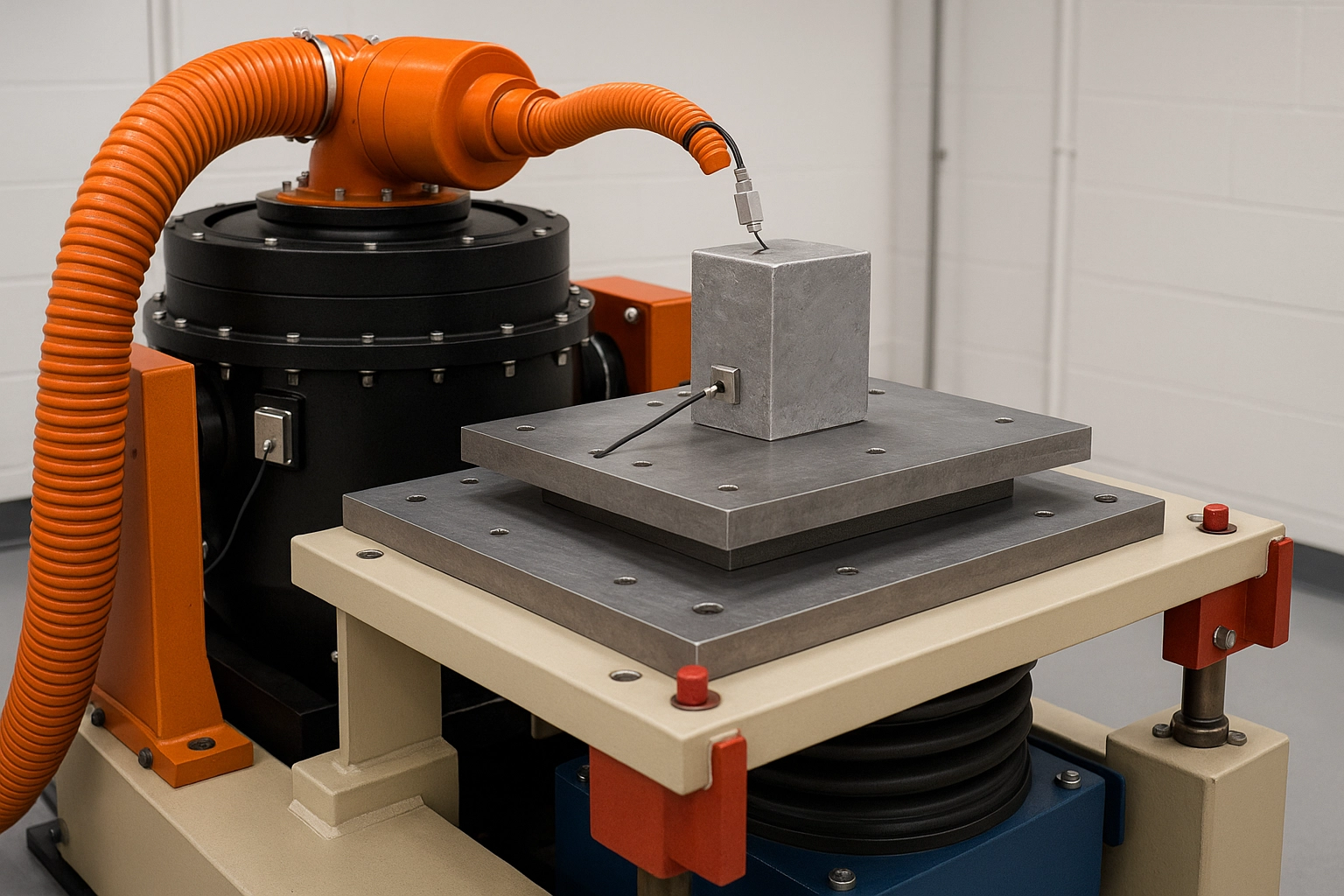SAE J1455 Vibration Test Procedures for Heavy-Duty Vehicles
The SAE J1455 test procedure is a critical standard used to evaluate the durability and integrity of heavy-duty vehicles under vibration conditions. This method, developed by the Society of Automotive Engineers (SAE), provides a standardized approach to assessing how these vehicles perform in environments characterized by mechanical shock and vibration.
Heavy-duty vehicles, such as trucks and buses, are subjected to intense mechanical stress during operation. The SAE J1455 test helps manufacturers ensure that their products can withstand these stresses without compromising safety or performance. By simulating real-world conditions through controlled laboratory environments, this procedure enables engineers to identify potential weaknesses early in the design phase.
The test protocol involves subjecting specimens to a series of cyclic loads designed to mimic road and off-road conditions. These tests are crucial for validating the structural integrity and component durability of heavy-duty vehicles. Compliance with SAE J1455 ensures that manufacturers meet industry standards, enhancing reliability and safety in vehicle design.
Compliance with this standard is not only a requirement for meeting regulatory standards but also essential for maintaining the reputation of the manufacturer. By adhering to these stringent procedures, companies can demonstrate their commitment to quality assurance and customer satisfaction. The results from such testing are invaluable tools in improving product designs and ensuring long-term reliability.
SAE J1455 is particularly relevant in today's fast-paced automotive industry where innovation and safety are paramount. It serves as a benchmark for manufacturers seeking to differentiate themselves through superior product performance. Understanding the nuances of this test procedure allows quality managers, compliance officers, R&D engineers, and procurement teams to make informed decisions that align with broader business goals.
- International Acceptance: The SAE J1455 procedure is widely recognized across various jurisdictions. It is accepted by regulatory bodies in North America, Europe, and Asia, ensuring seamless compliance for global manufacturers.
- Industry Standards: Compliance with this standard ensures that the product meets or exceeds international standards set forth by organizations like SAE, ISO, ASTM, EN, and IEC.
- Customer Trust: Demonstrating adherence to recognized industry standards builds trust among customers who value reliability and safety in their vehicles.
- Innovation Facilitation: By following this procedure, manufacturers can innovate confidently knowing that they are meeting the highest quality benchmarks.
Eurolab Advantages
At Eurolab, we pride ourselves on providing comprehensive and reliable testing services tailored to meet the exacting standards set by organizations like SAE. Our dedicated team of engineers and technicians ensures that every test conducted adheres strictly to the guidelines outlined in the SAE J1455 procedure.
Our state-of-the-art facilities offer a controlled environment where we can replicate real-world conditions accurately, allowing for precise measurements and observations during testing. This capability is crucial when it comes to assessing how heavy-duty vehicles handle mechanical shock and vibration.
The expertise of our personnel combined with cutting-edge technology guarantees accurate results that are both repeatable and reliable. Our commitment to quality extends beyond just meeting regulatory requirements; we aim to exceed expectations by offering customized solutions that cater specifically to the needs of each client. This approach ensures that every test conducted at Eurolab is unique, reflecting the specific challenges faced by our clients.
Moreover, our long-standing experience in the field allows us to stay abreast of any updates or changes within the industry regarding testing procedures and standards. We continuously invest in training our staff and updating our equipment to ensure that we remain at the forefront of technological advancements. This proactive stance enables Eurolab to provide timely feedback and recommendations based on current best practices.
Choosing Eurolab means partnering with a partner committed not just to delivering consistent results but also fostering innovation within the automotive sector. With our extensive knowledge base, robust infrastructure, and unwavering dedication to excellence, we are confident in providing unparalleled support throughout your testing journey.
Quality and Reliability Assurance
The SAE J1455 test procedure plays a vital role in enhancing the quality and reliability of heavy-duty vehicles. By subjecting specimens to rigorous vibration tests, manufacturers can identify potential flaws or weaknesses before they become critical issues on the road.
During these tests, various parameters are closely monitored to ensure that each vehicle meets stringent performance criteria. These include but are not limited to structural integrity, component durability, and overall system stability. The data collected from these tests provides valuable insights into how well the vehicle performs under extreme conditions, which is essential for improving future models.
Quality assurance processes play a crucial part in maintaining high standards throughout production cycles. At Eurolab, we employ advanced techniques such as finite element analysis (FEA) and computational fluid dynamics (CFD) to predict how components will behave under stress during testing. This predictive modeling helps us anticipate areas that may require further investigation or modification.
Our team works closely with clients to develop tailored test plans that address specific concerns related to their products' performance. By leveraging our extensive experience and cutting-edge technology, we ensure that every aspect of the testing process is optimized for efficiency and accuracy. This collaborative approach fosters a deeper understanding between us and our customers, leading to mutually beneficial outcomes.
Ultimately, our commitment to quality and reliability assurance through comprehensive vibration testing contributes significantly towards building safer, more dependable vehicles on the market today and into the future.





